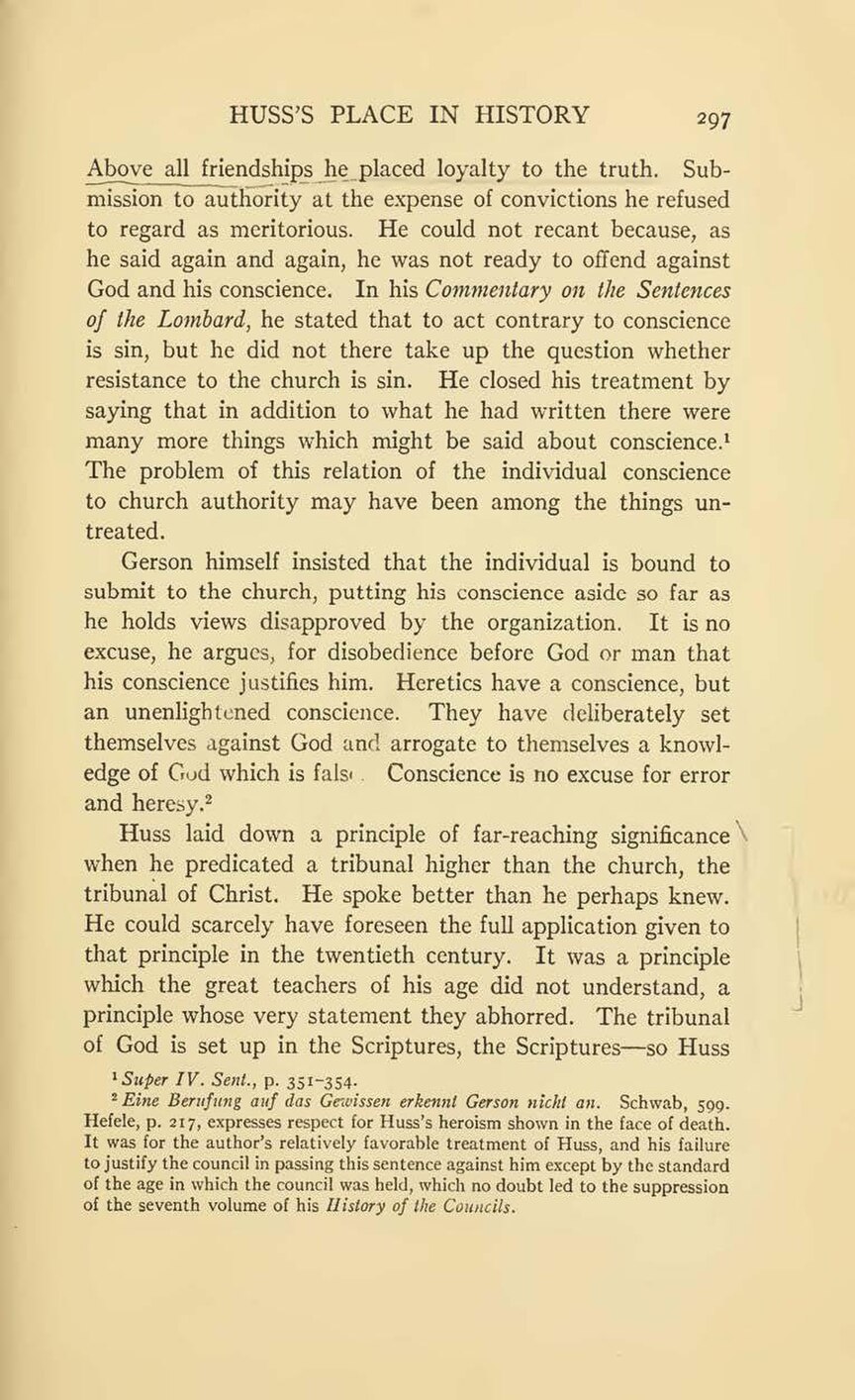Above all friendships he placed loyalty to the truth. Submission to authority at the expense of convictions he refused to regard as meritorious. He could not recant because, as he said again and again, he was not ready to offend against God and his conscience. In his Commentary on the Sentences of the Lombard, he stated that to act contrary to conscience is sin, but he did not there take up the question whether resistance to the church is sin. He closed his treatment by saying that in addition to what he had written there were many more things which might be said about conscience.[1] The problem of this relation of the individual conscience to church authority may have been among the things untreated.
Gerson himself insisted that the individual is bound to submit to the church, putting his conscience aside so far as he holds views disapproved by the organization. It is no excuse, he argues, for disobedience before God or man that his conscience justifies him. Heretics have a conscience, but an unenlightened conscience. They have deliberately set themselves against God and arrogate to themselves a knowledge of God which is falsConscience is no excuse for error and heresy.[2]
Huss laid down a principle of far-reaching significance when he predicated a tribunal higher than the church, the tribunal of Christ. He spoke better than he perhaps knew. He could scarcely have foreseen the full application given to that principle in the twentieth century. It was a principle which the great teachers of his age did not understand, a principle whose very statement they abhorred. The tribunal of God is set up in the Scriptures, the Scriptures—so Huss
- ↑ Super IV. Sent., p. 351–354.
- ↑ Eine Berufung auf das Gewissen erkennt Gerson nicht an. Schwab, 599. Hefele, p. 217, expresses respect for Huss’s heroism shown in the face of death. It was for the author’s relatively favorable treatment of Huss, and his failure to justify the council in passing this sentence against him except by the standard of the age in which the council was held, which no doubt led to the suppression of the seventh volume of his History of the Councils.
